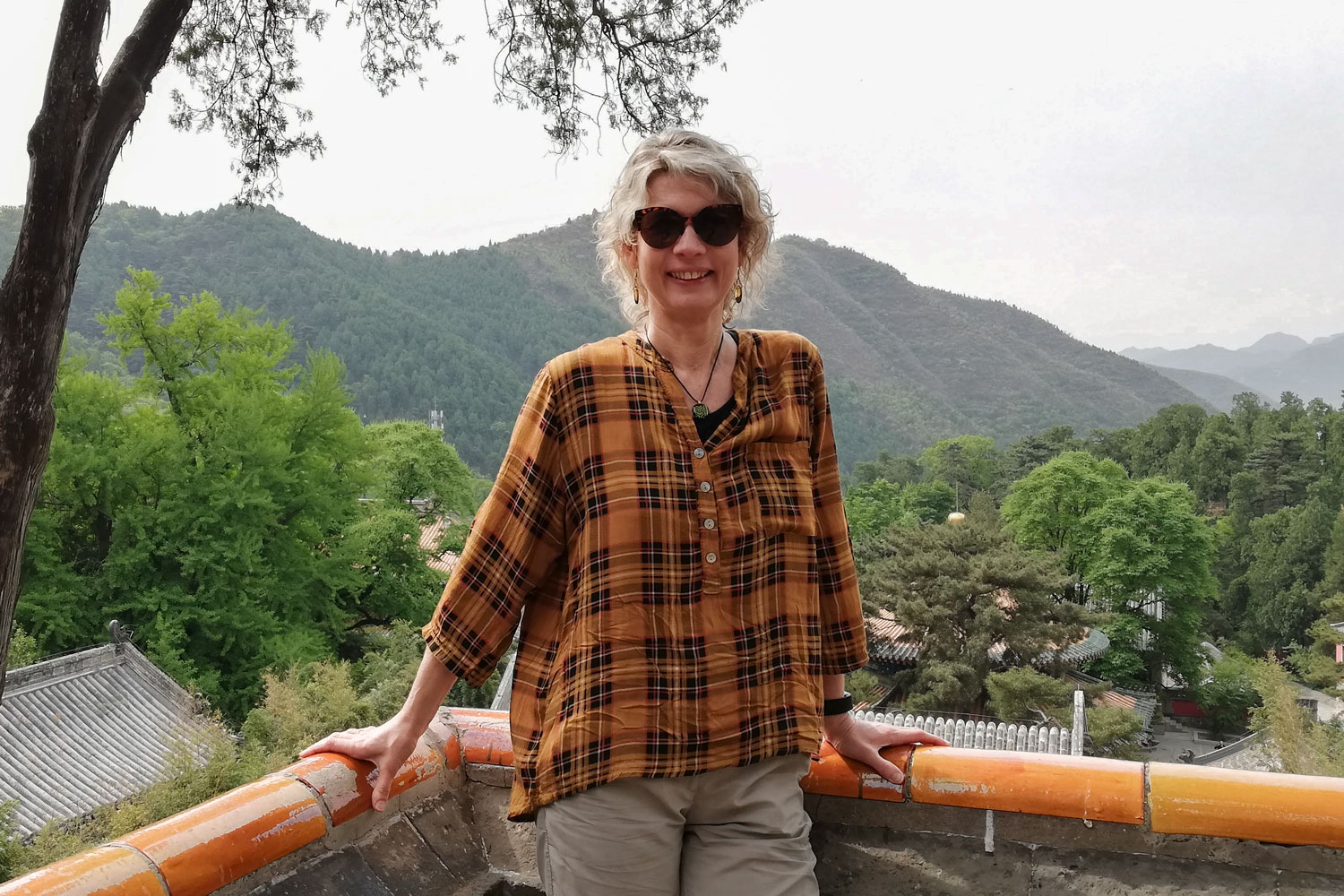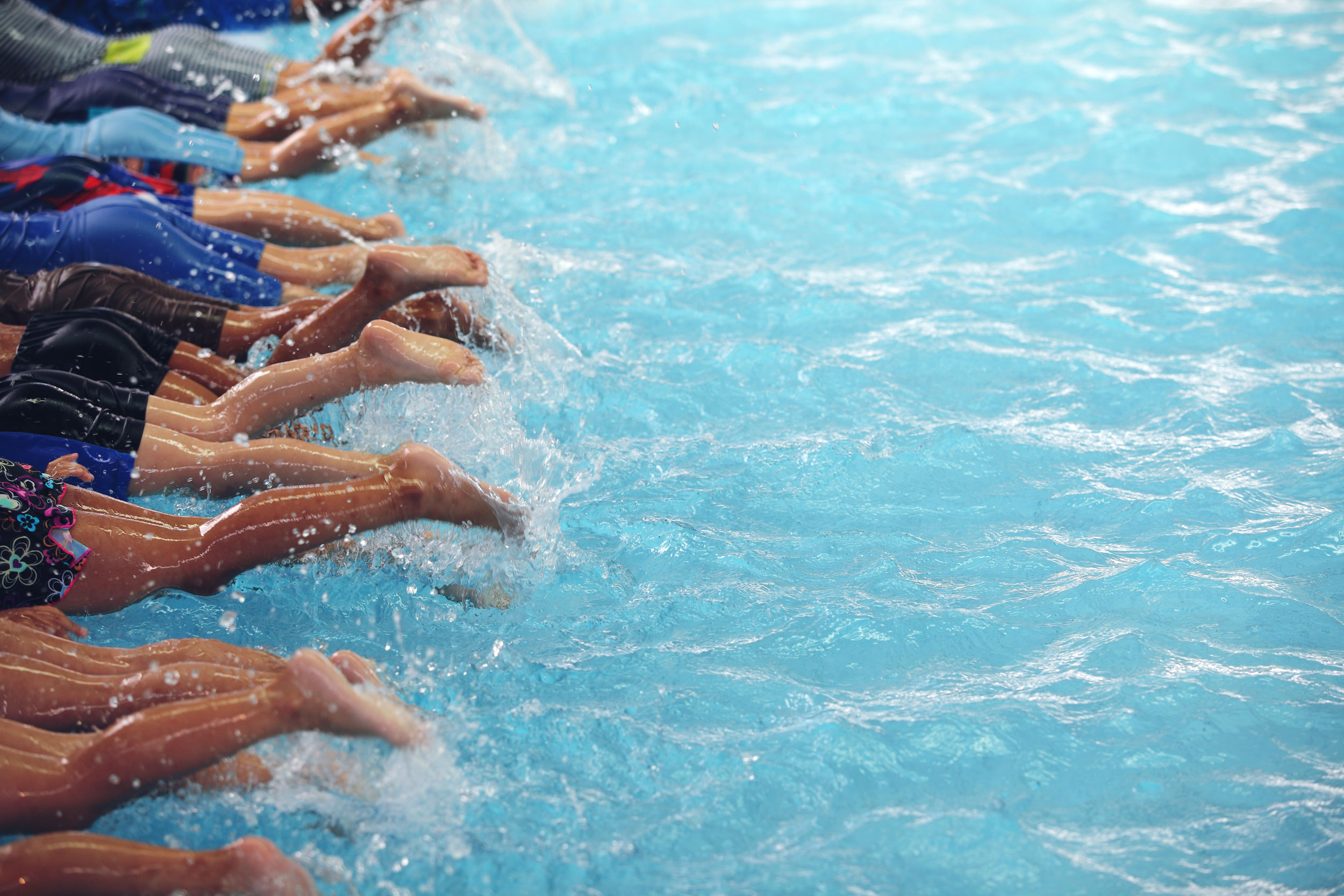For the first time since 1991, the United States will host the biannual International Symposium on Adapted Physical Activity, an academic conference that brings together researchers from around the world aiming to increase the equity and access to physical activity globally for individuals with disabilities.
The University of Virginia’s Curry School of Education and Human Development will host the conference from June 14 to 18 on UVA’s Grounds, with participants from South and East Asia, Eastern and Western Europe, and North and South American countries as well as a number of Curry School graduate students and alumni of the school’s Kinesiology for Individuals with Disabilities program.
Among them will be Aija Klavina, who earned her Ph.D. from Curry in 2007, of Latvia, who currently serves as president of the European Federation of Adapted Physical Activity.

Alumna Aija Klavina is president of the European Federation of Adapted Physical Activity. (Contributed photo)
In early 1990s, Klavina created the first sports program in Latvia specifically for children with disabilities and now works closely with colleagues in Eastern and Western Europe, most recently coordinating the European Union project grant on developing new physiotherapy study programs in Ukraine, including adapted physical activity training as part of health care.
We sat down with Klavina to discuss her current work, her time at UVA and her hopes for the upcoming conference.
Q. How did you become interested in advocating on behalf of children with disabilities?
A. After graduating the Latvian Academy of Sport Education in 1993, I received professional qualifications in physical education, coaching athletics and physical rehabilitation. While for most of my professional career I have been working in physiotherapy for children with disabilities, I was exploring ways to encourage these kids to be active and take part in sports.
In 1993, we established the Latvian Disabled Children and Youth Sport Federation, where I still serve as president. We are organizing sport events (e.g., the paralympic sport boccia, swimming, athletics and other) all year around. I have seen many success stories of children with disabilities beginning their sport career at our federation and progressing up to the Paralympic podium, while some have chosen sport as their profession.
Sport has played a significant role in their lives, giving self-confidence and raising self-esteem. This experience has encouraged me to discover different ways to promote participation in physical activities for children with disabilities.
Q. How did you choose to come to the Curry School for your doctorate?
A. It was combination of multiple fortunate circumstances. In 2003, I presented on inclusive physical education together with Glenn Roswal, professor emeritus at Jacksonville State University and former president of the Amerian Alliance for Health, Physical Education, Recreation and Dance at the AAHPERD convention in Philadelphia. During this conference, I met Martin Block, professor and director of the Curry School’s kinesiology for individuals with disabilities program, who told me about the graduate program and encouraged me to complete my Ph.D. at UVA. I was interested in doing research on inclusion of children with severe disabilities in physical activities. So the next year (summer 2004) I arrived [in] Charlottesville.
Q. What were your goals for Latvia when you returned there after earning your Ph.D.? How has your work taken shape there?
A. My goal was to make something like a “revolution” in sports for children with disabilities in my country. I wanted to create an adapted sport system that would provide children with disabilities opportunities to participate in daily physical activity in out-of-school programs, so they can choose sports they like to practice together with friends or siblings.
Also, I wanted to create new programs of study at the Latvian Academy of Sport Education to provide pre-service P.E. teachers, sport coaches and physiotherapists knowledge and competence to develop and implement adapted physical activities for persons with disabilities.
Latvia is a small country with a challenging economic situation that significantly affects health, education and social welfare system. There are not enough finances to develop a countrywide adapted sport system for children now, but I hope we will reach this aim in future.
Together with European colleagues from the Czech Republic, Poland, Ireland and other countries, we developed European Standards in Adapted Physical Activity. This document helped to create new study programs to train adapted physical activity specialists in education, sport and health sectors across Europe.
In 2015, I developed a new master’s program at the Latvian Academy of Sport Education about adapted physical activities in rehabilitation. It is two-year program of training graduate-level physiotherapists and occupational therapists in health-related physical activities for persons with different health problems or disabilities. This year we will graduate our third class of these adapted physical activities health professionals.
Q. You’ve expanded your work now into neighboring countries, most recently Ukraine. What is the process of making cross-national connections and expanding access to activities for children with disabilities in those countries?
A. Last year we received a project grant on building capacity in higher education for new physiotherapy programs in Ukraine. Together with colleagues from Poland, Lithuania, Finland and the Czech Republic, we will help universities in Ukraine develop programs of study that meet EU education and professional standards. The European Federation of Adapted Physical Activity, one of the EU partner organizations, will develop the health-related physical activity study module as part of the study program.
Access to daily physical activities for children with disabilities still is a problem in many countries. International connections and collaborations with colleagues on projects are a great opportunity to create and implement new initiatives and show decision-makers the importance of the need for access to physical activity as [a] human right.
Particularly for children, the sport environment is the best place to teach healthy values and unbiased attitudes and to lay the foundations for a better world for our future society.
Q. You currently serve as president of the European Federation of Adapted Physical Activity. How has it made an impact in the lives of people with disabilities?
A. I have been part of the EUFAPA since 2006, when the ex-president of the federation, Martin Kudlacek, organized the European Congress in Adapted Physical Activity in Olomouc [Czech Republic]. Our mission is to promote, facilitate and coordinate European cooperation in research, professional preparation, service delivery and advocacy of adapted physical activity for individuals with disabilities. Because of the diverse situations in APA services and education across Europe, the EUFAPA is the organization where we learn from each other, work together on projects and share our research outcomes.
I highly admire the work my colleagues are doing across Europe and the world. I know how difficult is to make sustainable changes in attitudes of society and promote non-discrimination and tolerance toward different abilities. I am proud of achievements of my colleagues, since according my own experience, I know how much time and effort it takes to make every small step. Many of us are devoting a lot of our free time and extra working hours to make small steps to open the doors to full participation in society for many children with disabilities.
Q. You are returning to UVA for the ISAPA conference next week. What are your hopes for this event?
A. I’m looking forward to seeing many colleagues and friends from all over the world. During the conference, there will be many excellent presentations I would like to attend. I’ll have two presentations myself.
Also, I’m excited to visit UVA, my alma mater. Some of my friends have asked me to give a tour around the UVA Grounds and Charlottesville. I hope to recognize places I used to walk every day.
Q. Is there any advice you would like to pass along to the current students in the kinesiology program?
A. There is tradition during events like this to have student-volunteers helping organizers to make the conference as excellent as possible. Their help is a fantastic asset for organizers and participants! I would like to encourage students to use this opportunity to meet outstanding experts and professionals from all over the world, to make contacts, to learn great ideas for future research and open new perspectives for their career.
I remember being a student attending international conferences and listening for well-known professors in adapted physical activity such as Lauren Lieberma and Martin Block from the U.S., Skayke Hutzler from Israel, Pauli Rintala from Finland and many others who are now my colleagues collaborating on different projects.
I wish all participants to enjoy the ISAPA 2019 and spend unforgettable days in Charlottesville!
Media Contact
Article Information
June 11, 2019
/content/qa-alumna-instrumental-promoting-physical-activity-children-disabilities

